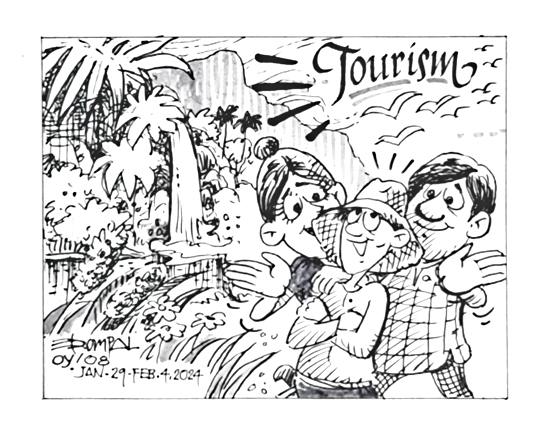As the Armed Forces of the Philippines (AFP) in Eastern Visayas continues its efforts to address the root causes of insurgency and promote sustainable development in conflict-affected areas, there is a growing recognition of the potential role of tourism in this process. In particular, there is a need to explore ways in which tourism can be used to help former New People's Army (NPA) influenced communities recover and rebuild their lives.
Tourism has the potential to provide economic opportunities, promote social cohesion and foster a sense of pride and identity among local communities. In areas that have been affected by conflict, tourism can also help to rebuild infrastructure, create jobs, and promote peace and reconciliation. Moreover, tourism can help to preserve local culture and traditions, providing an alternative source of income to farming and logging activities that have contributed to deforestation and environmental degradation.
However, it is important to approach tourism development in former NPA communities with caution and sensitivity. The communities themselves must be involved in decision-making processes and have ownership over tourism initiatives. This will help to ensure that tourism is developed in a way that is culturally appropriate and sustainable. Moreover, it is essential to address any underlying social and economic issues that may contribute to conflict and ensure that tourism is not used as a way to displace local communities.
To support tourism development in former NPA infested communities, the government can provide funding for infrastructure development, training and capacity building for local communities, and marketing and promotion of the area as a tourist destination. Moreover, the government can work to address any legal and regulatory barriers that may prevent local communities from participating in tourism initiatives.
In addition, the private sector can play a significant role in supporting tourism development. This can include investing in local businesses, providing employment opportunities, and supporting community-based tourism initiatives. Moreover, the private sector can work to ensure that tourism is developed in a way that is environmentally sustainable and that local communities are fairly compensated for their resources and knowledge.
In conclusion, tourism has the potential to be a powerful tool for promoting recovery and rebuilding in former NPA communities. However, it is essential to approach tourism development with caution and sensitivity, ensuring that local communities are involved in decision-making processes and that tourism is developed in a way that is culturally appropriate and sustainable. By working together, the government, private sector, and local communities can create opportunities for economic development, social cohesion, and environmental conservation in these recovering communities.
#OpinYon8 #OY8 #Editorial #Tourism #AFP #NPA #EasternVisayas #OpinYon #WeTakeAStand
